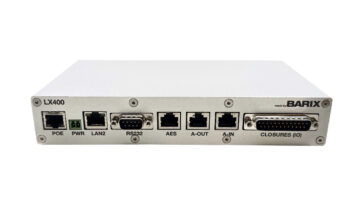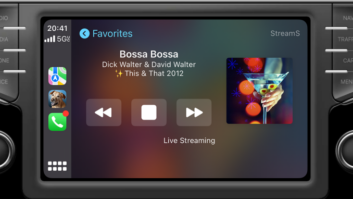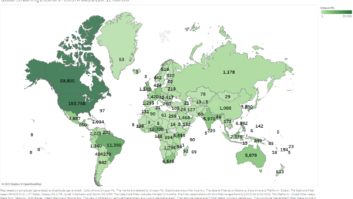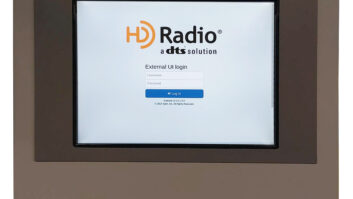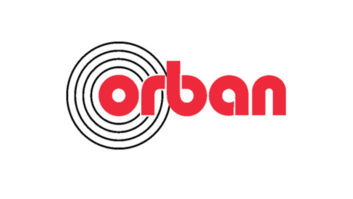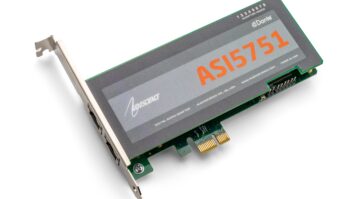LOS ANGELES —KVCM iscalled both “The Radio Station of Los Angeles Valley College” and “Monarchs Radio.” The latter refers to the university’s athletics department.

Sports, however, is just one focus of the station’s broadcast day, alongside music programming and other talk-based entertainment.
KVCM is an online-only station, with live and on-demand programming available at www.lavc.edu/kvcm. Given that online radio represents our entire listening audience, we have taken steps to ensure a reliable streaming architecture that retains exceptional audio quality through the air chain.
SIMPLICITY
The Barix Instreamer plays an integral role in the signal encoding and transport process, ensuring our live streams continue uninterrupted with consistent high quality.
KVCM was an over-the-air AM station before I came to Los Angeles Valley College, but the building that housed the station was dismantled in advance of my arrival. With most wiring and equipment removed, KVCM was reborn as an online entity. Given recent advances in IP technology, this seemed to be the most cost-effective method since we had to start from scratch.
Our earliest evaluations of technology options put Barix out front, as it delivered equal measures of reliability, cost-effectiveness and great-sounding audio. To the latter point, we are streaming 320 kbps MP3 audio with a 44.1 kHz sample rate — exceptional quality while using minimal network resources. We have been amazed by its stability; our Instreamer has only gone down once, due to a power failure. The device picked up right where it left off upon the power returning.
While our main Instreamer supports the studio-to-Internet stream, we have since added several units for remote broadcast applications across the campus. The majority of these are used for live broadcasts from sports venues, delivering commentary and other Monarchs game action to the studio. Like the general broadcast stream, the remote Instreamers bring reliability and quality to capturing broadcast audio in the field. Live streams of football and soccer games from Monarch Stadium have proved popular with students and the greater community. Elsewhere, the remote Instreamers capture audio from graduation ceremonies and other significant events, ensuring that rarely a week goes by without being used at least once.
Setting up the Instreamer is simple; once basic settings are adjusted for network requirements, the devices are plug-and-play. Tweaks are only necessary should we want to adjust bitrates or format. At this point, we are likely taking advantage of perhaps 20 percent of its capabilities. Moving forward, we expect to explore its various relay and contact closures for automatic program switching or ad insertions.
Perhaps the greatest benefit to using Barix is ongoing costs. The upfront costs were affordable, with each unit costing less than $400. However, by choosing Barix as opposed to other deliver methods we evaluated, we are saving between $5,000 and $10,000 a year. This is exceptional for a campus radio station, where revenue streams are a challenge.
Beyond online broadcasting, as an assistant professor I am honored to teach one of, if not the only, college course with an IP audio emphasis in the United States. The class, “News, Sports and Live Remote Broadcasting,” focuses on how to build remote setups for radio and television. The Barix Instreamer is used in a hands-on way, allowing students to configure streams from every corner of the campus to provide live remote broadcast. Students basically can carry it from room to room and building to building, and plug the device into an Ethernet port to establish a connection to our studio. To date, we have had about 500 students come through the program.
With IP technology essentially the future of broadcasting, Barix is playing a key role in educating our students before they head out into the professional broadcasting world.
For information, contact Barix at (866) 815-0866 or visit www.barix.com.





